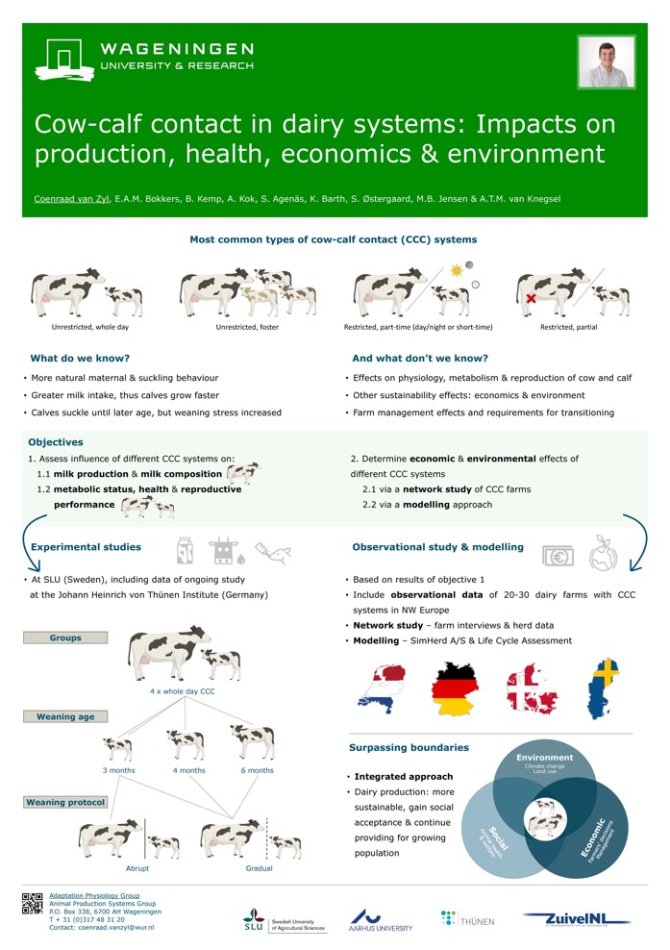
Project
Cow-calf contact in dairy systems: Impacts on production, animal health, farm economics & the environment
By Coenraad van Zyl
Interest in cow-calf contact (CCC) in dairy systems is increasing, both from society and the industry. In a CCC system, calves are housed together with dams/cows for a longer period of time and can suckle until a later age. Management strategies of CCC systems vary widely, depending on the degree of maternal contact and suckling allowed. Previous research showed that in a CCC system, cows and calves have more opportunities to exhibit natural behaviour. Up until now, the majority of research focused on the effects on behaviour and animal welfare. Despite this, CCC systems can also be expected to affect the metabolism, health and fertility of both cows and calves, while little is known about this. Similarly, long term effects of CCC systems are yet to be established, as well as the impact of these systems on the economy and the environment. In addition to the animal welfare aspects, this project will take a more complete approach to investigate CCC systems, focusing on animal health, economy and environment, as well as the wide variety of possibilities for practical application.
Through an experimental animal study, we will determine the effects of CCC systems, with varying amounts of maternal contact and suckling, on milk production, metabolic status, reproduction, growth and health of cows and calves. In addition, through an observational study, we will model the effects on farm economics and environment incorporating the variation in set-up and results of CCC systems in 4 North-Western European countries: the Netherlands, Germany, Denmark and Sweden.
